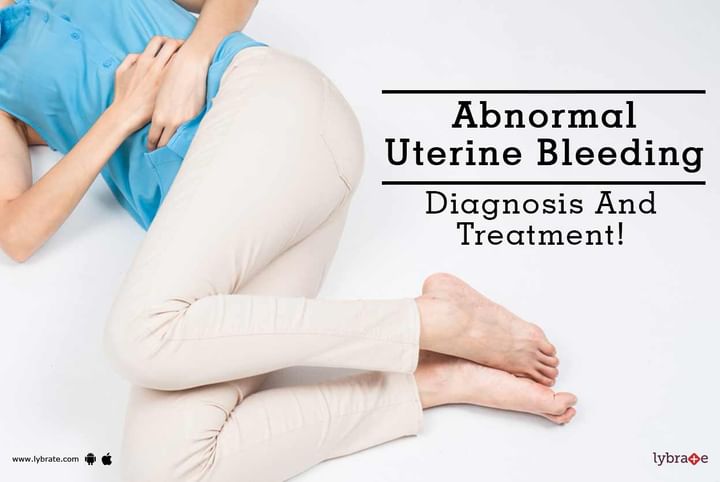Abnormal Uterine Bleeding - Diagnosis And Treatment!
Any kind of bleeding from the uterus, which is not normal, can be termed as abnormal uterine bleeding. This refers to bleeding between periods or before periods, bleeding after having sex, spotting, abnormally heavy bleeding or bleeding after attaining menopause. If you are suffering from any of these issues, you need to check with the doctor.
Diagnosis
It is very important to diagnose abnormal uterine bleeding. There are several examinations and tests that have to be carried out, depending on age. For irregular spotting, a pregnancy test can be undertaken in case you think you could be pregnant. If your uterine bleeding is very heavy, a test has to be performed to check blood count. This is done to observe whether you have anemia. An ultrasound test of the pelvic region will also be advised by your doctor to know the cause of the bleeding. Several hormonal tests and thyroid function tests are required as well.
Other diagnostic tests include:
- Sonohysterography: When fluid is placed within the uterus and ultrasound images of the uterus are taken. An image of the pelvic organs is obtained.
- Hysteroscopy: It can be carried out when a device is inserted via the vagina and enables the doctor to examine the uterus internally.
- Magnetic resonance imaging: This is also used to get images of the organs.
- Endometrial biopsy: It involves insertion of a catheter to take out a tissue which is microscopically observed.
Treatment
There are different types of treatment for abnormal uterine bleeding depending upon factors such as the cause of bleeding and the age of the patient.
- Medications: Several medicines are used to treat abnormal uterine bleeding. Sometimes hormonal medicines are used. Birth control pills are also used to improve the regularity of periods. Hormonal infections, vaginal creams and an IUD device releasing hormone can be used. Nonsteroidal anti-inflammatory drugs are also used to control bleeding. Several antibiotics may also be prescribed.
- Surgery: In some cases of abnormal uterine bleeding, a woman has to undergo a surgery for the removal of growth such as polyps and fibroids, which results in bleeding. While some fibroids can be removed via hysteroscopy, others require different techniques for treatment.
- Endometrial ablation: It can be undertaken to control bleeding. This mode of treatment aims at reducing the bleeding permanently. In case all treatment methods fail, hysterectomy has to be carried out. This is a major surgery and after it is performed, a woman does not have periods anymore and will not be able to conceive a child.
Abnormal uterine bleeding is a major health condition, which may lead to severe complications. Immediate diagnosis and appropriate treatment methods should be undertaken in case of any abnormal uterine bleeding.



+1.svg)
